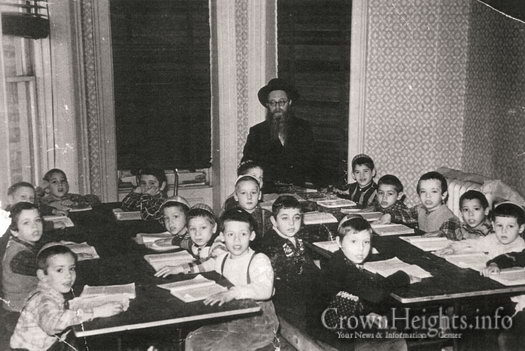
Salvaging the “Rotten Apple” – The Rebbe on Expelling Students
Question:
I am the principal of a school and my utmost priority is to make sure that the atmosphere of the school is filled with Yiras Shamayim. There are a few students that are ruining the atmosphere and it seems to be having a negative effect on other students. Does the Rebbe allow us to expel students, knowing that it can ruin those individual students?
Answer:
This is indeed a very important and sensitive question. Before getting into the guidelines that the Rebbe sets up in this sensitive area, it is important to quantify the question.
(1) The question only arises when it comes to expelling a student. In regards to originally accepting a student that had shown such issues (like a student that has been previously expelled from another school), there is no obligation to accept him. (Igros, Vol. 14 p. 403; #5179).
(2) The question only arises if the decision to expel is being considered by a group of the Hanhalla. If the decision was forced by one person, it is completely unacceptable (Igros, Vol. 21 p. 333; #8088).
In regards to the actual question of expelling the individual talmid(im), the Rebbe’s approach is unequivocal: The benefit of the many outweighs the benefit of the individual. At the same time, to do everything in our power to save and help the individual as well. (Igros, Vol. 11, p. 225 #3613)
The following are some quotes of letters (paraphrased) about this sensitive dilemma that the Rebbe wrote over the years:
1. “While it is obvious that the benefit of the many outweighs the benefit of the individual, in most instances — with the right care and attention — the students can be influenced for the better. First he will change his behavior in regards to having a negative influence on others and eventually even better his own behavior.” (Igros, Vol. 7 p. 310; #2166).
2. “In regards to the particular student that was having a negative influence on others, it would be a good idea to try to positively influence him through ‘elevation’: Just as there is a well-known story of a Chassid of the Alter Rebbe who would tell himself that it is unfitting for such a great chassid and such a big Rebbe to listen to the Yetzer Hara”. (Igros, Vol. 8 p. 310; #2562).
3. “The first step to dealing with a student that is having a negative influence should not be a final expulsion. There are alternative solutions especially if there is the proper oversight and care by the hanhala which would prevent many of the issues.” (Igros, Vol. 14 p. 404; #5179)
4. “While it is obvious that the benefit of the many outweigh the benefit of the individual, we must do all within our power that the individual too should not be pushed away. …It is my hope that when they will be spoken to in a caring way by a Farbrengen, and through their friends, they will change their ways. (Igros, Vol. 10 p. 173; #3138)
5. “In these circumstances, where a few students were suspended and the hanhala is not sure what to do with them in the future, the directive is well-known that much is dependent on the personalities and the place. Thus, they should seek counsel from those who are local and know the details of the situation.” (Igros, Vol. 12 p. 246; #4063).
6. “It is possible that the negative tendencies of the students are coming from psychological and medical issues, which can be helped through medical intervention. Thus, it would be advisable to seek advice from a medical professional in this field to guide you.” (Igros, Vol. 11 p. 225; #3613).













